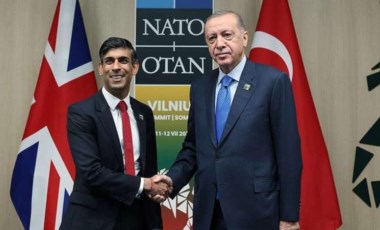Opinion: Turkey's Missed Opportunity in a Shifting Global Order
Ergin Yıldızoğlu

When the "rules-based international order" crafted during a period of hegemony within the imperialist system begins to unravel, countries deemed as "dependent" gain greater flexibility and are more likely to prioritize policies that benefit their populations. However, this is contingent on the presence of a ruling class capable of formulating such policies.
As the global order, forged under British hegemony, unravelled, particularly in the interwar era, countries like Argentina, Brazil, and Turkey seized the opportunity to embark on independent development and industrialization endeavours. Yet, as capitalism overcame its structural crisis, these nations reverted to their status as "dependent countries" within the new order established under US hegemony, causing their ability to pursue national policies to steadily erode.
For some time now, the "rules-based order" anchored in US hegemony has been showing signs of disintegration. Within this unfolding scenario, as evident in recent military coups in West Africa and the BRICS meeting held last month, "dependent" countries are once again expanding their room for manoeuvre and enhancing their capacity to formulate and implement policies aligned with the interests of their people. Unfortunately, it appears that Turkey may not capitalize on these opportunities this time and could become ensnared in the vortex of this disintegration process.
States of fragmentation
Three dynamics are fueling the disintegration and augmenting the room for manoeuvrability of "dependent" countries:
- The US-centric West no longer stands as the sole global "pole." Emerging powers, with China ascending to the ranks of a superpower due to its economic, technological, and diplomatic prowess, are reshaping the global landscape. This transformation is generating economic and even military equilibriums that will expand the scope for manoeuvrability for these "dependent" nations.
- While the West carries the legacy of 500 years of colonialism, racism, and "wars of redistribution," which seem to be fading with the USA, it has become a source of mistrust and animosity in the "dependent" countries. In contrast, China's egalitarian and "respectful" diplomatic relations, at least for now, are driving these countries away from the West. Frequently, they collaborate with China and even Russia on international forums. China and Russia consistently extend support to them in opposition to the West whenever the opportunity arises.
- Concurrently, there is a mounting body of evidence suggesting that the US-centric West is losing its financial, diplomatic, and even military capacity to retain the allegiance of the "dependent" countries. These developments are bolstering the inclination of "dependent" countries to act autonomously. For instance, while military coups in West Africa are pressuring France to withdraw from the region, the coup leaders express intentions to harness their national resources for the benefit of their nations and are open to assistance from Russia and China in this regard.
States of Turkey
Currently, numerous international platforms and publications are engaging in discussions about "the prerequisites for countries to withstand this trend of disintegration." These dialogues chiefly underscore a nation's capacity to sustain its economy. In recent years, both China and the USA have been rapidly advancing in this regard. Among the resilience prerequisites for "dependent" countries, the importance of maintaining substantial foreign exchange reserves, managing debt obligations, and ensuring food, water, and energy security are emphasized. Nevertheless, three other indispensable conditions also exist: a governing class (comprising the bureaucracy and academia) with the ability for rational thinking, a robust intellectual base through a well-educated populace, and a relatively stable "social consensus."
Regrettably, Turkey, under the control of the AKP, with both its government and opposition, falls considerably short in all these domains. The prevailing sentiment that backs a rival nation's team over the victory of Turkey's women's volleyball team, rooted in a tradition that references the bygone era of disintegration and collapse by saying, "I wish Sevres had been implemented," underscores that the concept of "social consensus" has long since dissipated.

En Çok Okunan Haberler
-
 Cem Küçük: Akın Gürlek arkadaşım
Cem Küçük: Akın Gürlek arkadaşım
-
 Çocuğa öldüresiye şiddet! Şahıs tutuklandı
Çocuğa öldüresiye şiddet! Şahıs tutuklandı
-
 Özgür Özel'in A takımı belli oldu!
Özgür Özel'in A takımı belli oldu!
-
 Özel ile tartışan Berhan Şimşek'ten açıklama
Özel ile tartışan Berhan Şimşek'ten açıklama
-
 Hasadı 1 ay sürecek: Kilosu 150 TL...
Hasadı 1 ay sürecek: Kilosu 150 TL...
-
 Berkay Gezgin için sürpriz karar
Berkay Gezgin için sürpriz karar
-
 Özgür Özel'in A takımı belli oldu!
Özgür Özel'in A takımı belli oldu!
-
 CHP'li Emir'den 'Berhan Şimşek' açıklaması
CHP'li Emir'den 'Berhan Şimşek' açıklaması
-
 Masasındaki 5 anketin ortalamasını açıkladı
Masasındaki 5 anketin ortalamasını açıkladı
-
 İETT'ye kumpas görüntüleri
İETT'ye kumpas görüntüleri


